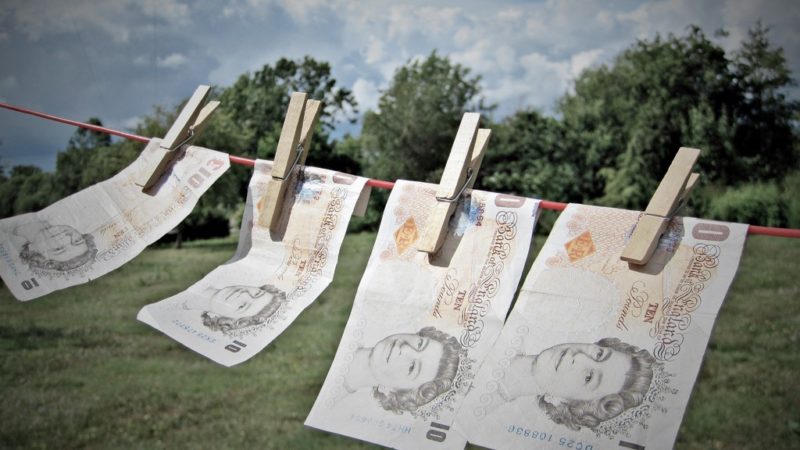'The insolvency industry is the ‘wild west’ of our times'

Prem Sikka is an Emeritus Professor of Accounting at the University of Essex and the University of Sheffield, a Labour member of the House of Lords, and Contributing Editor at Left Foot Forward.
Various forms of Covid-related government support for business have ended and the temporary restraints on creditors bringing insolvency proceedings have been lifted. The inevitable result is a surge in business insolvencies resulting in loss of jobs, pensions, savings and investments.
The misery for many is a boon for insolvency practitioners. The UK has around 1,570 licenced insolvency practitioners (IPs), of which around 1,288 are active appointment takers. Most work in accounting firms. All corporate and personal insolvencies must be processed by an IP. This is a state-guaranteed licence to print money. Rather than swiftly completing insolvencies, the IPs take years and continue to charge fees.
The Insolvency Service, an executive agency of the Department of Business, Energy and Industrial Strategy, is responsible for regulating the insolvency industry. This has been delegated to four trade associations known as the Recognised Supervisory Bodies (RPBs). These are the Chartered Accountants Ireland, the Institute of Charted Accountants in England and Wales (ICAEW), the Institute of Chartered Accountants of Scotland and the Insolvency Practitioners Association. They have no independence from their members and are experts at sweeping things under their dust-laden carpets.
The insolvency industry is the ‘wild west’ of our times where the innocents are abused, corrupt practices flourish and town sheriffs collude in cover-up. A recent report by the All Party Parliament Group (APPG) on Fair Business Banking documented that abuses are rife. It reported “the willingness of IPs to sell their independence, and their considerable powers, in return for an appointment to an insolvency case. … IPs view their court appointed powers as little more than a commodity to be sold to the highest bidder”.
Sally Masterton’s report, codenamed Project Lord Turnbull, was written in 2013 and formally published in June 2018 by the APPG on Fair Business Banking. It documented some of the frauds at HBOS, which could not have been carried out without the complicity of insolvency practitioners. There has been no investigation.
BHS entered administration in April 2016, followed by liquidation in December 2016. Five years on, the liquidator is still raking in fees. Carillion collapsed in January 2018 and the end of insolvency is not in sight. PricewaterhouseCoopers helping the official receiver are expected to chalk-up fees of more than £100 million, leaving almost nothing for unsecured creditors. Comet, electrical appliances store, collapsed in 2012 and its liquidators Deloitte’s insolvency partners charged up to £1,125 per hour for insolvency work. The insolvency is still not finalised.
At October 2020, some 7,962 business insolvencies had been running for the period of 5-9 years and were incomplete, the numbers running for 10-14 years and not completed were 3,642. 14,328 were running for more than 15 years, enabling IPs to milk them for exorbitant fees. There are no inquiries into delays or excessive fees. The long-suffering public can’t even demand information as the RPBs are excluded from the freedom of information law.
In the last 10 years, some 8,000 complaints about excesses of insolvency practitioners have been lodged with RPBs. Only five insolvency practitioners have had their licenses revoked. The regulatory system is adept at fobbing people off and many give up because of obfuscation and exhaustion.
One of the recent high profile insolvency cases relates to the collapse of Silentnight. Following pressure from the Pensions Regulator and the Pension Protection Fund, the Financial Reporting Council, instead of the RPBs, investigated the collapse. Its report said that KPMG and its insolvency partner pushed Silentnight, one of the firm’s clients, into insolvency so that private equity firm HIG, a client coveted by KPMG, could buy the company out of administration at a lower price by dumping pension obligations to employees. Around 1,200 workers lost some of their pension rights. KPMG boosted its profits, its partners got richer.
The insolvency partner was found to be “untruthful”. KPMG and the “untruthful” partner were fined £13m and £500,000 respectively, together with investigation costs of £3m. The partner was excluded from membership of the ICAEW for 13 years.
However, in the smoke and mirrors world of insolvency, all is not what it seems. The partnership agreements usually specify that the firm would pay the fines, which is especially likely here as KPMG profited from untruthful conduct. The partner was probably close to retiring and will have a huge pension pot. He will make a fortune from selling his partnership status and will probably become a consultant to the firm. Not one penny of the £13m fine will be used to compensate the workers who lost their pension rights. Instead, it goes to the ICAEW who licensed the lying partner. Some reward for nurturing incompetent IPs. KPMG are still trading and its partner has not faced any criminal sanctions for robbing the pension rights of Silentnight workers.
Corruption is institutionalised in the insolvency industry and a public inquiry is long overdue. Replacing the four RPBs with an independent regulator is a necessary reform together with an independent ombudsman to adjudicate on disputes. The IPs must owe a ‘duty of care’ to stakeholders and their files must be open for all to make assessment of their diligence.
To reach hundreds of thousands of new readers we need to grow our donor base substantially.
That's why in 2024, we are seeking to generate 150 additional regular donors to support Left Foot Forward's work.
We still need another 117 people to donate to hit the target. You can help. Donate today.



